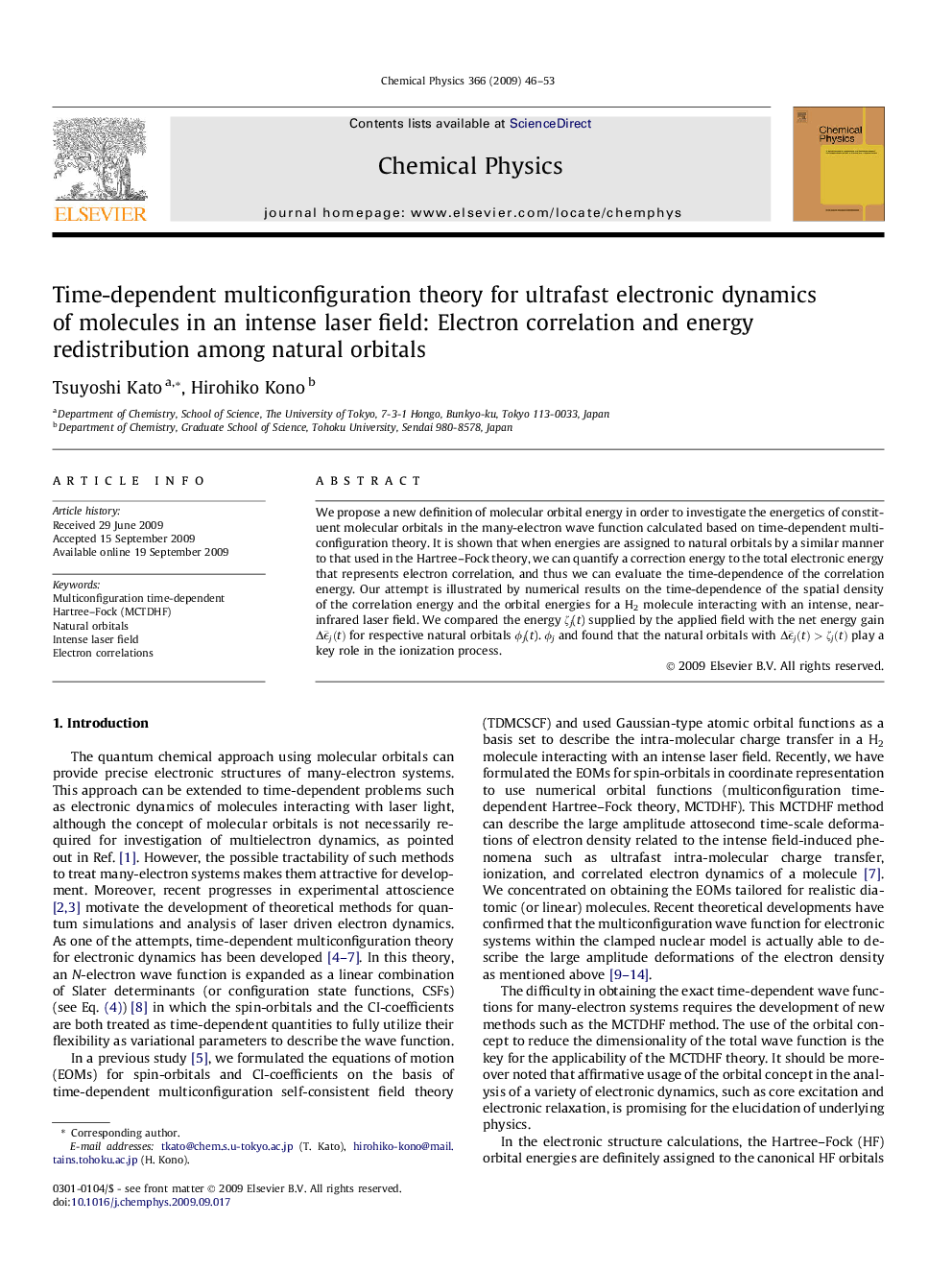| Article ID | Journal | Published Year | Pages | File Type |
|---|---|---|---|---|
| 5375414 | Chemical Physics | 2009 | 8 Pages |
Abstract
We propose a new definition of molecular orbital energy in order to investigate the energetics of constituent molecular orbitals in the many-electron wave function calculated based on time-dependent multiconfiguration theory. It is shown that when energies are assigned to natural orbitals by a similar manner to that used in the Hartree-Fock theory, we can quantify a correction energy to the total electronic energy that represents electron correlation, and thus we can evaluate the time-dependence of the correlation energy. Our attempt is illustrated by numerical results on the time-dependence of the spatial density of the correlation energy and the orbital energies for a H2 molecule interacting with an intense, near-infrared laser field. We compared the energy ζj(t) supplied by the applied field with the net energy gain Îϵ¯j(t) for respective natural orbitals Ïj(t). Ïj and found that the natural orbitals with Îϵ¯j(t)>ζj(t) play a key role in the ionization process.
Related Topics
Physical Sciences and Engineering
Chemistry
Physical and Theoretical Chemistry
Authors
Tsuyoshi Kato, Hirohiko Kono,
